Today Current Affairs: 30th July 2021 for UPSC IAS exams, State PSC exams, SSC CGL, State SSC, RRB, Railways, Banking Exam & IBPS, etc
Table of Contents
The Insolvency And Bankruptcy Code (Amendment) Bill, 2021:
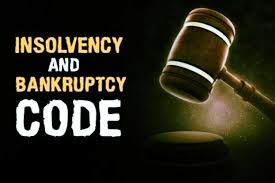
The Insolvency and Bankruptcy Code (Amendment) Bill, 2021, passed by Lok Sabha has proposed ‘pre-packs’ or Pre-packaged Insolvency Resolution Process (PIRP) as an insolvency resolution mechanism for Micro, Small and Medium Enterprises (MSMEs).
- A pre-pack envisages the resolution of the debt of a distressed company through a direct agreement between secured creditors and the existing owners or outside investors, instead of a public bidding process.
- Under the pre-pack system, financial creditors will agree to terms with the promoters or a potential investor, and seek approval of the resolution plan from the National Company Law Tribunal (NCLT).
- The approval of at least 66 per cent of financial creditors that are unrelated to the corporate debtor would be required before a resolution plan is submitted to the NCLT.
- The NCLTs will be required to either accept or reject an application for a pre-pack insolvency proceeding before considering a petition for a Corporate Insolvency Resolution Process (CIRP).
- One of the key criticisms of the CIRP has been the time it takes for resolution. The pre-pack in contrast, is limited to a maximum of 120 days with only 90 days available to stakeholders to bring a resolution plan for approval before the NCLT.
- Another key difference between pre-packs and CIRP is that the existing management retains control in the case of pre-packs; in the case of CIRP, a resolution professional takes control of the debtor as a representative of inancial creditors.
- This ensures minimal disruption of operations relative to a CIRP.
Swachh Bharat Mission (Grameen) Phase – 2:
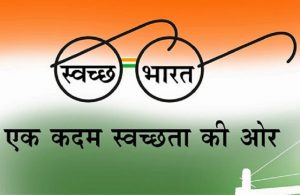
Jal Shakti Minister Gajendra Singh Shekhawat released the ODF Plus Manuals under Swachh Bharat Mission (Grameen) Phase – 2 in New Delhi.
- The manuals pertain to key components of ODF Plus – Grey Water Management, Plastic Waste Management, Faecal Sludge Management and Biodegradable Waste Management.
- The Department of Drinking Water and Sanitation has developed manuals to support states, districts, and rural local bodies implement solid and liquid waste management initiatives.
- Phase – 2 of the Swachh Bharat mission aiming at achieving ODF Plus goal was launched last year, which focuses on ODF sustainability and Solid and Liquid Waste Management aiming at comprehensive cleanliness in villages.
SLDE And GHG Calculator:

The government has launched the Secured Logistics Document Exchange (SLDE) along with a Calculator for GreenHouse Gas (GHG) Emissions to boost Ease-Of-Doing Business in the country.
- In World Bank’s Ease-Of-Doing Business Report, 2020 India was ranked 63 out of 190 countries.
Secured Logistics Document Exchange:
- The SLDE platform is a solution to replace the present manual process of generation, exchange and compliance of logistics documents with a digitized, secure and seamless document exchange system.
- It will enable generation, storage and interchange of logistics-related documents digitally using Aadhaar and blockchain-based security protocols for data security and authentication
- It will also provide a complete audit trail of document transfer, faster execution of transactions, lower cost of shipping and overall carbon footprint, easy verification of authenticity of documents, lowered risk of fraud, etc.
GreenHouse Gas Emission Calculator:
- The GHG Calculator is an efficient, user-friendly tool and provides for calculating and comparing GHG emissions across different modes.
- It allows for commodity-wise comparison of GHG emissions and total cost of transportation, including their environmental cost, between movement by road and rail.
- The tool is intended to facilitate appropriate modal choice for all concerned.
Juvenile Justice Amendment Bill, 2021:
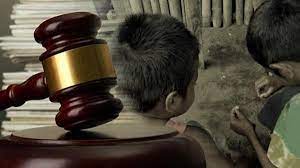
The Juvenile Justice (Care and Protection of Children) Amendment Bill, 2021, was passed in the Rajya Sabha.
- The bill seeks to amend the Juvenile Justice Act, 2015.
- The National Commission for Protection of Child Rights (NCPCR) audit of Child Care Institutions (CCIs) in 2020, 90% of which are run by NGOs, found that 39% CCIs were not registered, even after the 2015 amendment was brought in.
- It also found that less than 20% CCIs, especially for girls, had not been set up in some states, 26% child welfare officers were not there.
- Moreover, three-fifths have no toilets, one-tenth have no drinking water and 15% of homes don’t have provisions for separate beds or diet plans.
- Rehabilitation of children is not a priority for childcare homes and children are reportedly kept in such institutions to get funds.
Key Amendments Proposed by the Bill:
- Serious Offences: Serious offences will also include offences for which maximum punishment is imprisonment of more than seven years, and minimum punishment is not prescribed or is of less than seven years.
- Serious offences are those for which the punishment under the Indian Penal Code or any other law for the time being is imprisonment between three and seven years.
- Non-cognizable Offences:The present Act provides that an offence which is punishable with imprisonment between three to seven years to be cognizable (where arrest is allowed without warrant) and non-bailable.
- The Bill amends this to provide that such offences will be non-cognizable.
- Adoption: Presently, the adoption order issued by the court establishes that the child belongs to the adoptive parents. The Bill provides that instead of the court, the District Magistrate (including Additional District Magistrate) will issue such adoption orders.
- Appeals: The Bill provides that any person aggrieved by an adoption order passed by the District Magistrate may file an appeal before the Divisional Commissioner, within 30 days from the date of passage of such order.
- Additional Functions of the District Magistrate: These include: supervising the District Child Protection Unit, and conducting a quarterly review of the functioning of the Child Welfare Committee.
- Designated Court: The Bill proposes that all offences under the earlier Act be tried in children’s court.
- Child Welfare Committees (CWCs): It provides that a person will not eligible to be a member of the CWC if he/she
- has any record of violation of human rights or child rights,
- has been convicted of an offence involving moral turpitude,
- has been removed or dismissed from service of the central government, or any state government, or a government undertaking,
- is part of the management of a child care institution in a district.
- Removal of Members: The appointment of any member of the committee shall be terminated by the state government after an inquiry if they fail to attend the proceedings of the CWCs consecutively for three months without any valid reason or if they fail to attend less than three-fourths of the sittings in a year.
Deposit Insurance And Credit Guarantee Corporation (DICGC) Bill, 2021.:

The Union Cabinet has cleared the Deposit Insurance and Credit Guarantee Corporation (DICGC) Bill, 2021.
- The failure of banks such as Punjab and Maharashtra Co-operative (PMC) Bank, Yes Bank and Lakshmi Vilas Bank reignited the debate on the low level of insurance against the deposits held by customers in Indian banks.
- Deposit Insurance: It is a protection cover against losses accruing to bank deposits if a bank fails financially and has no money to pay its depositors and has to go in for liquidation.
- Credit Guarantee: It is the guarantee that often provides for a specific remedy to the creditor if his debtor does not return his debt.
- Coverage: The bill will cover 98.3% of depositors and 50.9% of deposit value in the banking system, way above the global level of 80% and 20-30%, respectively.
- It will cover all types of banks, which also include regional rural banks and co-operative banks.
- It will cover banks already under moratorium and those that could come under moratorium.
- Moratorium is a legally authorized period of delay in the performance of a legal obligation or the payment of a debt.
- Insurance Cover: It will provide funds up to Rs 5 lakh to an account holder within 90 days in the event of a bank coming under the moratorium imposed by the Reserve Bank of India (RBI).
- Earlier, account holders had to wait for years till the liquidation or restructuring of a distressed lender to get their deposits that are insured against default.
- The Rs 5-lakh deposit insurance cover was raised from Rs 1 lakh in 2020.
- The Damodaran Committee on ‘Customer Services in Banks’ (2011) had recommended a five-time increase in the cap to Rs. 5 lakh due to rising income levels and increasing size of individual bank deposits.
- Within the first 45 days of the bank being put under moratorium, the DICGC would collect all information relating to deposit accounts. In the next 45 days, it will review the information and repay depositors within a maximum of 90 days.
Earth Overshoot Day, 2021:

According to the World Wide Fund for Nature (WWF), humanity has again used up all biological resources that our planet regenerates during the entire year by 29th July, 2021.
- Humanity currently uses 74% more than what the planet’s ecosystems can regenerate — or 1.7 Earths.
From Earth Overshoot Day until the end of the year, humanity operates on ecological deficit spending. - The day marks the date when humanity’s demand for ecological resources (fish and forests, for instance) and services in a given year exceeds what the Earth can regenerate in that year.
- The concept of Earth Overshoot Day was first conceived by Andrew Simms of the UK think tank New Economics Foundation, which partnered with Global Footprint Network in 2006 to launch the first global Earth Overshoot Day campaign.
- Global Footprint Network is an international non profit organization founded in the year 2003. It’s key strategy has been to make available robust Ecological Footprint data.
- The Ecological Footprint is a metric that comprehensively compares human demand on nature against nature’s capacity to regenerate.
- Earth Overshoot Day is computed by dividing the planet’s biocapacity (the amount of ecological resources Earth is able to generate that year), by humanity’s Ecological Footprint (humanity’s demand for that year), and multiplying by 365, the number of days in a year:
- (Earth’s Biocapacity / Humanity’s Ecological Footprint) x 365 = Earth Overshoot Day
Vandalism:
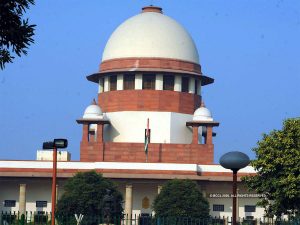
The Supreme Court held that lawmakers cannot indulge in criminal acts on the Parliament or Assembly floors and then take cover behind the right to free speech.
- The court refused the Kerala government’s plea to withdraw prosecution of top Left Democratic Front (LDF)leaders accused of vandalism and wanton destruction of public property on the Assembly floor during a Budget speech in 2015.
- Acts of vandalism cannot be said to be manifestations of freedom of speech and be termed as ‘proceedings’ of the Assembly.
- It was not the intention of the drafters of the Constitution to extend the interpretation of ‘freedom of speech’ to include criminal acts by placing them under a veil of protest.
- Legislators cannot unleash violence, run riot in Parliament or a Legislative Assembly and then claim parliamentary privilege and immunity from criminal prosecution. Parliamentary privileges and immunities are not “gateways” for legislators to claim exception from the law of the land, especially criminal law.
- The court explained that the purpose of bestowing privileges and immunities to elected members of the legislature was to enable them to perform their “essential functions” without hindrance, fear or favour.The ‘essential’ function of the House is collective deliberation and decision-making.
Raja Mircha:
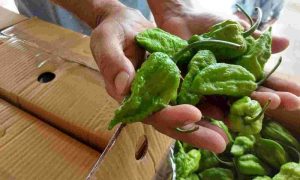
In a major boost to exports of Geographical Indications (GI) products from the north-eastern region, a consignment of ‘Raja Mircha’ also referred as king chilli from Nagaland was exported to London via Guwahati by air for the first time.
- The consignment of King Chilli also considered as world’s hottest based on the
- The chilli from Nagaland is also referred as Bhoot Jolokia and Ghost pepper.
- It got GI certification in 2008.
- Nagaland King Chilli belongs to genus Capsicum of family Solanaceae.
- Naga king chilli has been considered as the world’s hottest chilli and is constantly on the top five in the list of the world’s hottest chilies based on the Scoville Heat Units (SHUs).
- In 2021, APEDA has facilitated exports of Jackfruits from Tripura to London and Germany, Assam Lemon to London, Red rice of Assam to the United States and Leteku ‘Burmese Grape’ to Dubai.
Basavaraj Bommai :23rd Chief Minister (CM) Of Karnataka.:

Basavaraj Bommai has been appointed as the 23rd Chief Minister (CM) of Karnataka.
- Basavaraj Somappa Bommai (born 1960) is an Indian politician and mechanical. He is a member of the Bharatiya Janata Party.
- He belongs to Banajiga sub-sect of Lingayat community.
- Bommai is the son of the former Chief Minister of Karnataka, S. R. Bommai.
- He is the current and 23rd CM of Karnataka. On 28 July 2021, he succeeded B. S. Yediyurappa as the CM.
Dalit Bandhu: Flagship Programme Of The Telangana Government:
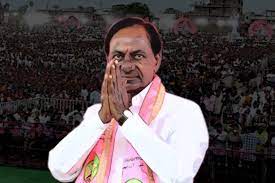
Dalit Bandhu is the latest flagship programme of the Telangana government envisioned as a welfare scheme for empowering Dalit families.
- Dalit Bandhu enables entrepreneurship among Dalits through a direct benefit transfer of Rs 10 lakh per family.
- This is going to be the biggest cash transfer scheme in the country.
- To promote Dalit entrepreneurship, the government has decided to start a system of reservation for Dalits in sectors where the government issues licences. This includes wine shops, medical shops, fertiliser shops, rice mills, etc.
Dalit Security Fund:
- Apart from monetary assistance, the government plans to create a corpus called the Dalit Security Fund permanently to support the beneficiary in the event of any adversities.
- This fund will be managed by the district collector concerned, along with a committee of beneficiaries.
Academic Bank Of Credit:
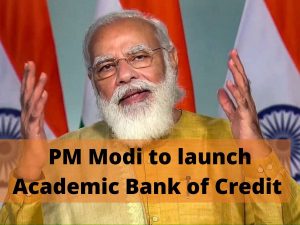
Academic Bank of Credit (ABC), proposed under the National Education Policy (NEP) 2020, will be unveiled.
- Academic Bank of Credit (ABC) Set-up by the University Grants Commission (UGC).
- Under the ABC, students will be given multiple entry and exit options.
- This enables students to leave a degree or course and get a corresponding certification and rejoin studies after a certain time and be able to start from where they had left.
- It will also provide students with the flexibility to move between institutes while pursuing one degree or leave a course.
- ABC will keep records of the academic credits of a student.
- It will not accept any credit course document directly from the students for any course they might be pursuing, but only from higher education institutes, who will have to make deposits in students’ accounts.
SCO Defence Ministers’ Meeting:
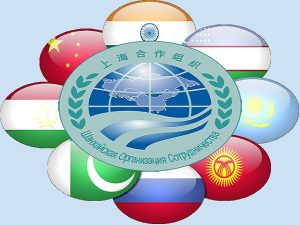
The Shanghai Cooperation Organisation (SCO) Defence Ministers’ Meeting took place in Dushanbe, Tajikistan.
- The Defence Minister of India addressed the grouping and said India is committed to working within the SCO framework for helping create & maintain a secure & peaceful region.
Major Highlights of Defence Minister’s Address:
- Terrorism is the most serious threat to international peace and security and support to any acts of terror is a crime against humanity.
- India reaffirms its resolve to fight terrorism in all its forms and manifestations.
- The geo-strategic location of India makes it both a “Eurasian land power” as well as a stakeholder in the Indo-Pacific.
- Highlighted non-traditional security challenges like pandemics, climate change, food security, water security and associated societal disruptions can impact national and international landscape.
- In dealing with Covid-19 pandemic, India has been at the forefront to provide support and assistance to countries through its Vaccine diplomacy.
- India’s initiative on coalition for disaster resilient infrastructure (CDRI) was also an example of how countries were coming together to create and share capabilities to deal with humanitarian assistance and disaster relief issues.
SCO:
- The SCO was founded at a summit in Shanghai in 2001 by the presidents of Russia, China, the Kyrgyz Republic, Kazakhstan, Tajikistan and Uzbekistan.
- Presently, the SCO comprises eight member states namely India, Kazakhstan, China, the Kyrgyz Republic, Pakistan, the Russian Federation, Tajikistan, and Uzbekistan.
- SCO nations together encompass nearly half the human population and it covers approximately three-fifths of the Eurasian continent in terms of geographical expanse.
- The SCO, seen as a counterweight to NATO, is an eight-member economic and security bloc and has emerged as one of the largest transregional international organisations.
- India was made an observer at the SCO in 2005.
- India and Pakistan became its permanent members in 2017.
Food Systems Summit:

It is taking place in Rome.
- The Pre-Summit of the UN Food Systems Summit will set the stage for the culminating global event in September.
- Originally announced on 16 October 2019 by UN Secretary-General António Guterres, the UN Food Systems Summit, including a Pre-Summit, was conceived following conversations with the joint leadership of the three Rome-based United
- Nations agencies – the Food and Agriculture Organization, the International Fund for Agricultural Development and the World Food Programme – at the High-level Political Forum in July 2019.
- The Food Systems Summit is convened as part of the Decade of Action to achieve the Sustainable Development Goals (SDGs) by 2030.
- The Summit will launch bold new actions to deliver progress on all 17 SDGs, each of which relies to some degree on healthier, more sustainable and equitable food systems.
- Guided by five Action Tracks, the Summit will bring together key players from the worlds of science, business, policy, healthcare and academia, as well as farmers.
Food System:
- The term “food system” refers to the constellation of activities involved in producing, processing, transporting and consuming food.
- Food systems touch every aspect of human existence.
- The health of our food systems profoundly affects the health of our bodies, as well as the health of our environment, our economies and our cultures.
- When they function well, food systems have the power to bring us together as families, communities and nations.




